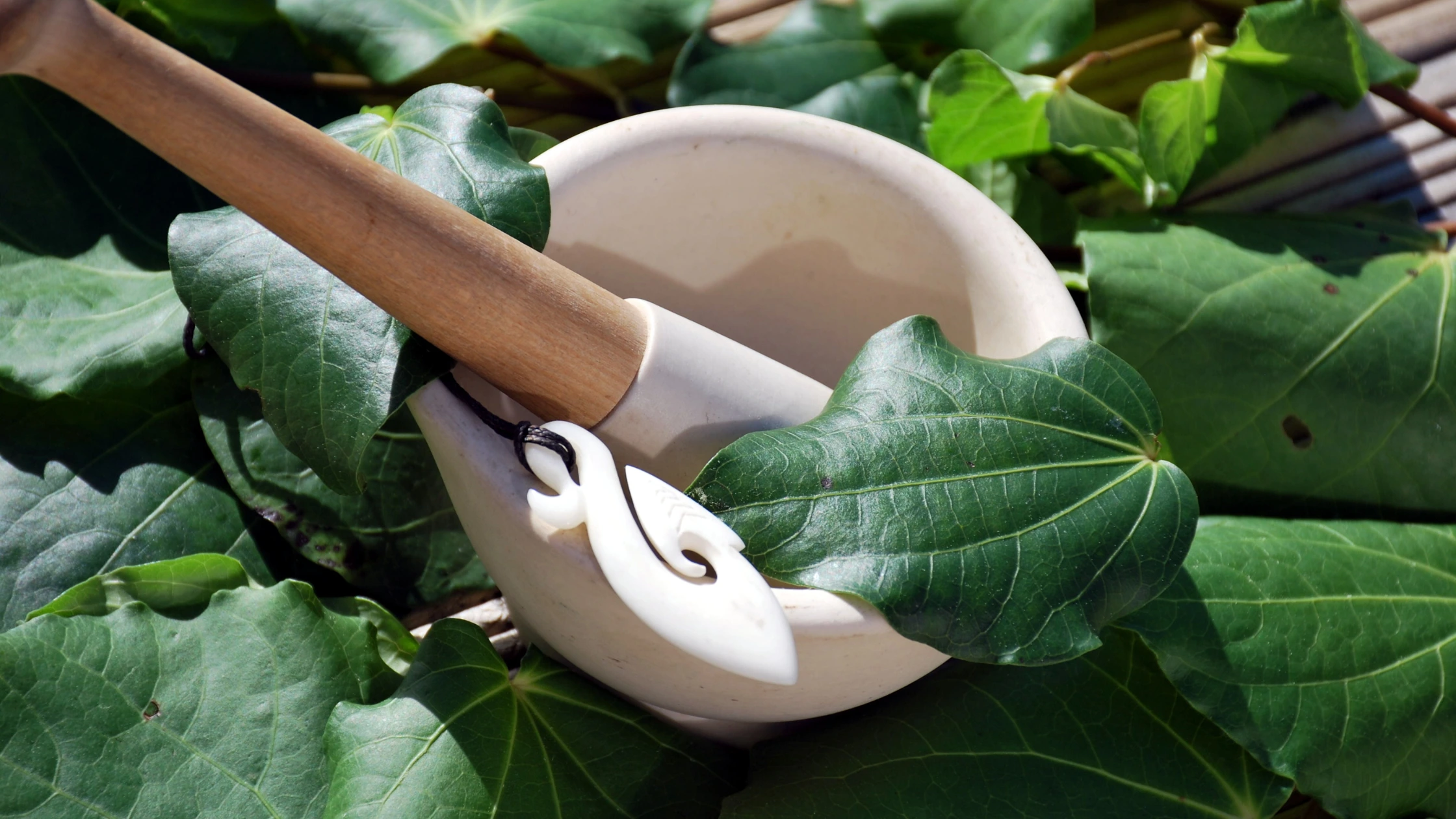When you pop open an Atutahi bottle, you don’t just get a refreshing drink—you taste centuries of Māori wisdom. The practice of making drinks with native New Zealand botanicals, which has its roots in the healing tradition of Rongoā Māori, serves as a meaningful link between ancient cultural practices and today’s health-focused consumer scene.
This blog looks at how Rongoā Māori, or traditional Māori medicine, shapes the growth of modern beverage development—within brands like Atutahi that value authenticity, sustainability, and cultural integrity.
What is Rongoā Māori?
Rongoā Māori refers to the age-old healing practices that Māori have used for many years. It has its roots in whakapapa (genealogy), wairua (spirituality), and the all-encompassing link between people and the natural world. Rongoā covers herbal medicines spiritual treatments, and hands-on therapies such as mirimiri (massage).
A lot of plants used in Rongoā Māori—like kawakawa, harakeke, mānuka, and kūmarahou—have well-known health benefits. People used to brew these as teas or put them on their skin, but now, they’re getting a new lease on life in wellness drinks that respect both their healing history and today’s nutrition science.
The Comeback of Native Plants in Today’s Drinks
In the last ten years native ingredients have gained popularity, both for their health advantages and their link to indigenous knowledge systems. Companies like Atutahi lead this trend, making drinks that not taste great, but also have a story to tell.
Consider kawakawa, for instance. People often call it the “Māori bush basil,” and it has a long history as a natural remedy to help digestion and reduce inflammation. Atutahi’s Kawakawa Sparkling Drink brings this plant’s qualities into a cool drink, while keeping its traditional importance.
This move towards local ingredients shows more than just a health fad. It points to a change in culture—one that prizes genuineness, honors Māori wisdom, and goes back to natural long-lasting wellness methods.
From Curing to Quenching: Honoring the Rongoā Approach
What sets the use of Rongoā in drinks apart from adding herb flavors is the rich cultural background of each component.
Rongoā Māori goes beyond plants—it’s about purpose. In the past, healers (tohunga) picked plants while saying karakia (prayers). They recognized the plants’ life energy and asked to use them. Most companies don’t include this spiritual link when making products. But Atutahi takes care to follow these customs showing they truly value tikanga Māori (cultural practices) when using native plants.
By weaving these beliefs into new drink creation, Atutahi and other Māori-run companies are leading the way in responsible sourcing, cultural protection, and complete wellness.
Scientific Interest and Nutritional Potential
Today’s science is catching up to Rongoā Māori’s wisdom. Studies reveal that native plants such as mānuka and kūmarahou possess antioxidant, anti-inflammatory, and even antibacterial qualities. This opens up new possibilities to combine traditional healing with proven health advantages in ways that attract global wellness consumers.
Instead of isolating compounds or altering plants to fit Western drug-making, the most ethical and sustainable approach respects the entire plant, its background, and the people who have nurtured it for generations.
Cultural Authenticity: Its Importance in Drink Creation
Consumers are seeking real, culture-rich experiences in food and drink. This trend is especially noticeable in Aotearoa (New Zealand) where Māori companies are taking back control of their stories and using platforms like drink creation to teach, boost, and strengthen.
Atutahi’s beverages act as a way to tell cultural stories letting people experience the energy of native plants in a respectful and easy-to-understand manner. This doesn’t just create a product, but a link—to the earth, to culture, and to oneself.
By maintaining Māori knowledge as the cornerstone of innovation, Atutahi doesn’t just produce drinks—they breathe new life into a tradition and build paths to wellness across generations.
The Road Ahead: Rongoā Māori’s Future in Drinks
Drinks inspired by Rongoā Māori will thrive through teamwork—linking science with tradition, makers with communities, and culture with business.
We see a growing chance to:
- Back Māori-run businesses in the drink industry.
- Push for responsible harvesting and native land care.
- Honor traditional knowledge as wisdom that grows and changes, not a relic frozen in time.
As people seek ways to back natural wellness and grasp deeper meanings behind their consumption, drinks that draw inspiration from Rongoā Māori will keep growing in global significance.
Learn About Atutahi’s Cultural Method to Create Drinks
Atutahi takes pride in upholding the values of manaakitanga (care) and kaitiakitanga (guardianship) in all our products. We don’t just make beverages—we pay tribute to whakapapa, back indigenous innovation, and share Rongoā Māori with the world in respectful and uplifting ways.
Check out our complete lineup of native-inspired drinks, which includes:
Each bottle shows a dedication to real ingredients, health benefits, and cultural roots. Come with us to rediscover Rongoā Māori’s strength—one drink at a time.
Frequently Asked Questions
Rongoā Māori refers to traditional Māori healing practices that rely on native plants. Modern drinks draw inspiration from these plants to create beverages that keep their cultural importance alive.
Atutahi uses plants like kawakawa, kūmarahou, and mānuka in its drinks. Each plant has unique health benefits and deep cultural significance in Māori healing traditions.
Scientists have studied many of the native plants for their health properties such as antioxidants and anti-inflammatory effects. These drinks offer natural wellness benefits, though they’re not medical products.
Atutahi follows tikanga Māori (cultural protocols) in its production. The company prioritizes ethical sourcing and works with Māori communities to ensure authenticity and respect for their culture.
Cultural integrity makes sure that traditional knowledge isn’t misused or turned into a commodity. It helps create respect keeps things sustainable, and builds stronger connections with customers.
